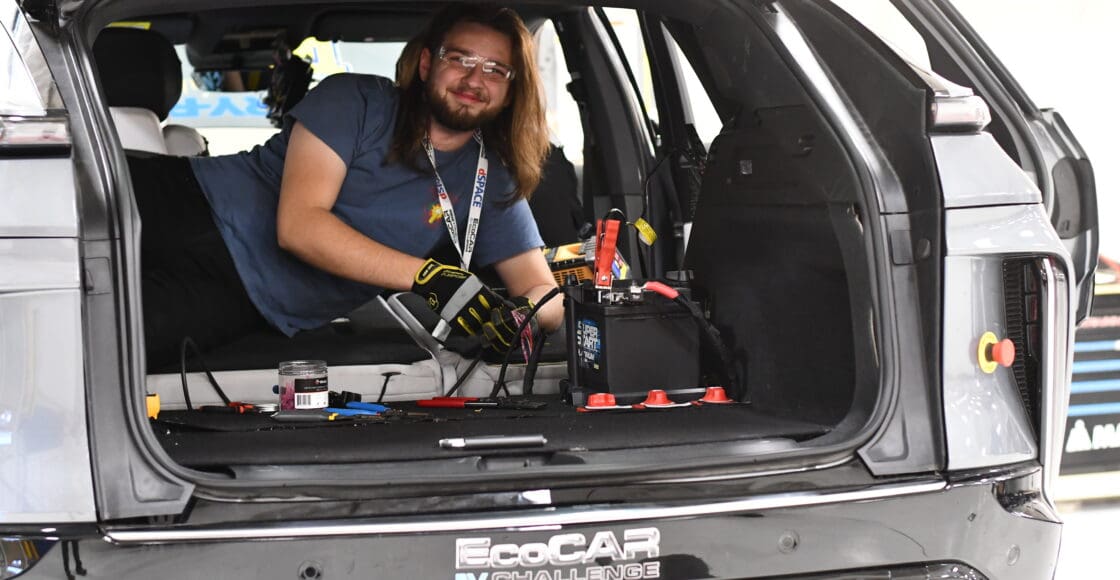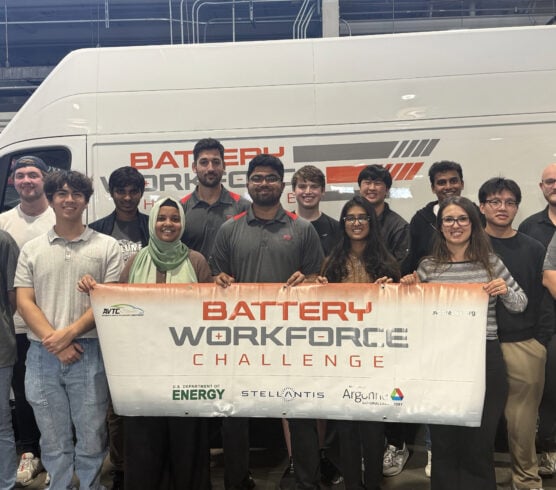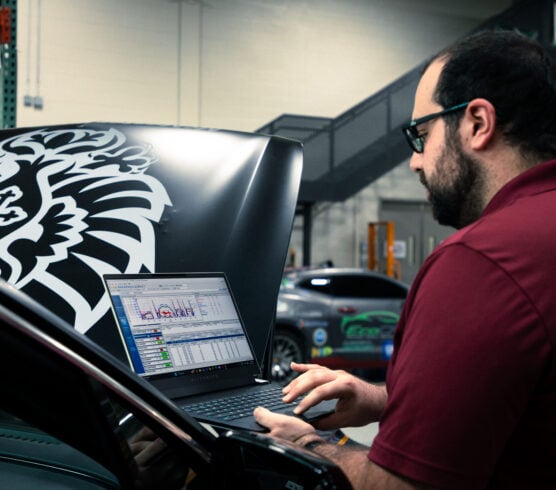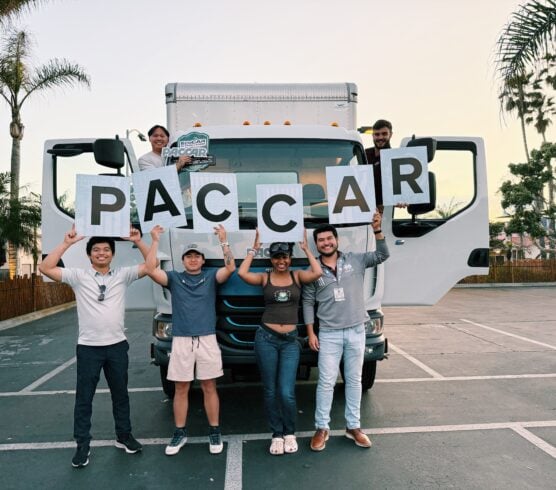Written by: Buchizya Mwase
Year 3 of the EcoCAR EV Challenge was a pivotal period of growth and success for our team. Through innovation, collaboration, and resilience, we made significant strides in our vehicle development. This year was filled with remarkable achievements—from critical technical milestones to enhanced team coordination and improved competition readiness.
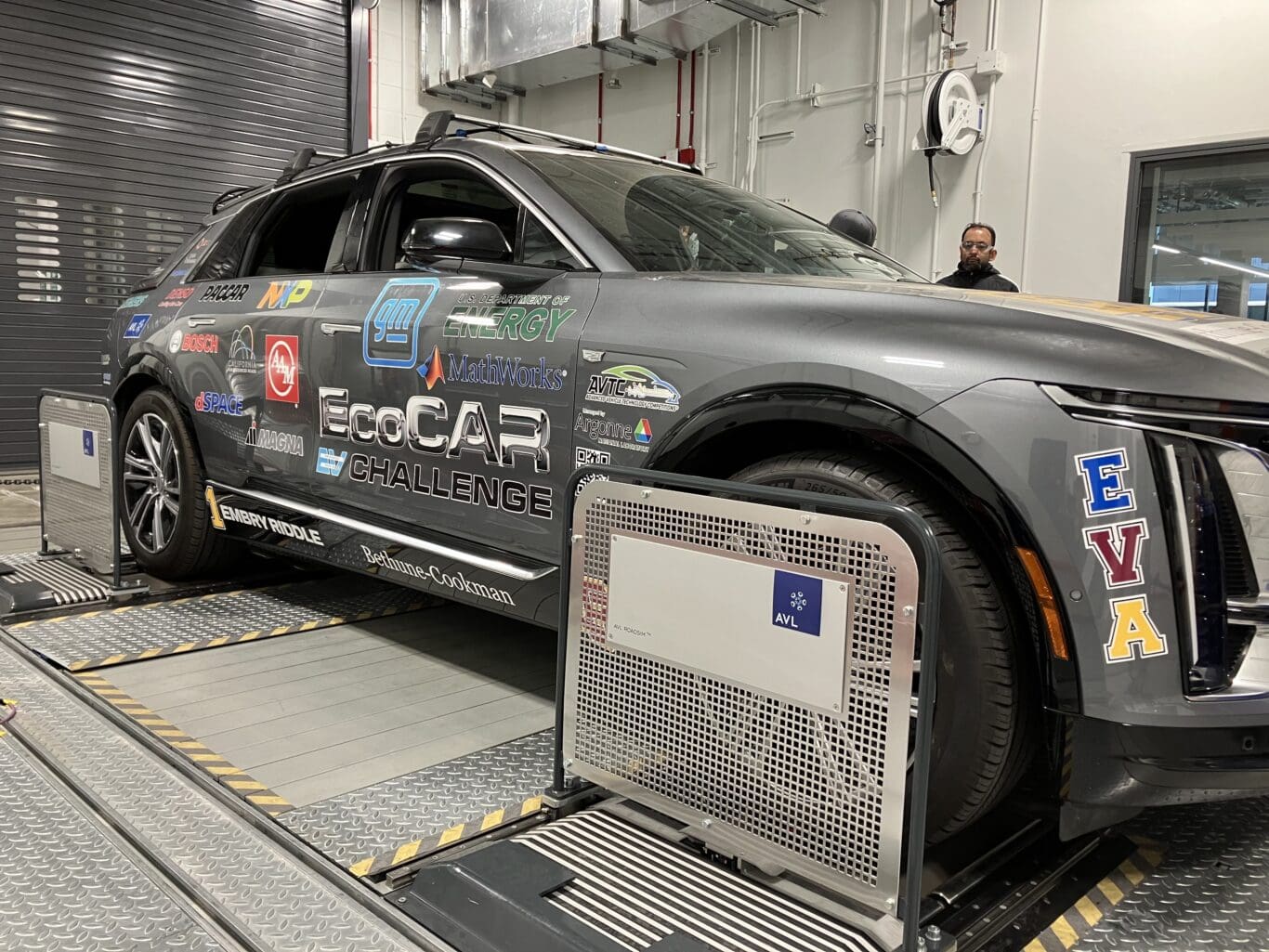
One of our most significant accomplishments this year was the successful integration of rear-wheel drive (RWD) in the vehicle. This milestone marked a critical step in our vehicle’s progress, ensuring that our modifications align with performance expectations and real-world application. After rigorous development and testing, we validated our work on the dynamometers at California Air Resources Board (CARB), proving that our work on the car was functional. A key success was also getting the vehicle to complete the full Multi Cycle Test (MCT) drive cycle with no violations. This achievement highlighted the efforts of our senior design members, who played an instrumental role in developing fault detection systems and setting up team data displays.
One of the most exciting moments of the semester for the team was seeing the LYRIQ’s wheels spin on their own while on the lift. This achievement was a direct result of the team’s dedication and commitment, as they worked tirelessly to refine the vehicle and reach this milestone. It was a defining moment that highlighted the perseverance and collaborative effort of everyone involved. Additionally, we made major progress in getting the LYRIQ into its best operating condition yet.
During the Year 3 Competition, we were honored to have Dr. Jim Gregory, Dean of the College of Engineering at Embry-Riddle, join us during the Ride & Drive event at General Motors’ Desert Proving Ground in Yuma, Arizona. Reflecting on the team’s progress, Dr. Gregory shared:
“The students are learning how to work together as a team. I think that’s such a critical part of that of with a complex system like a car, where safety is critical and all these different systems and subsystems that must work together very well. The students have to work together as a team in order to reach their common goal.”
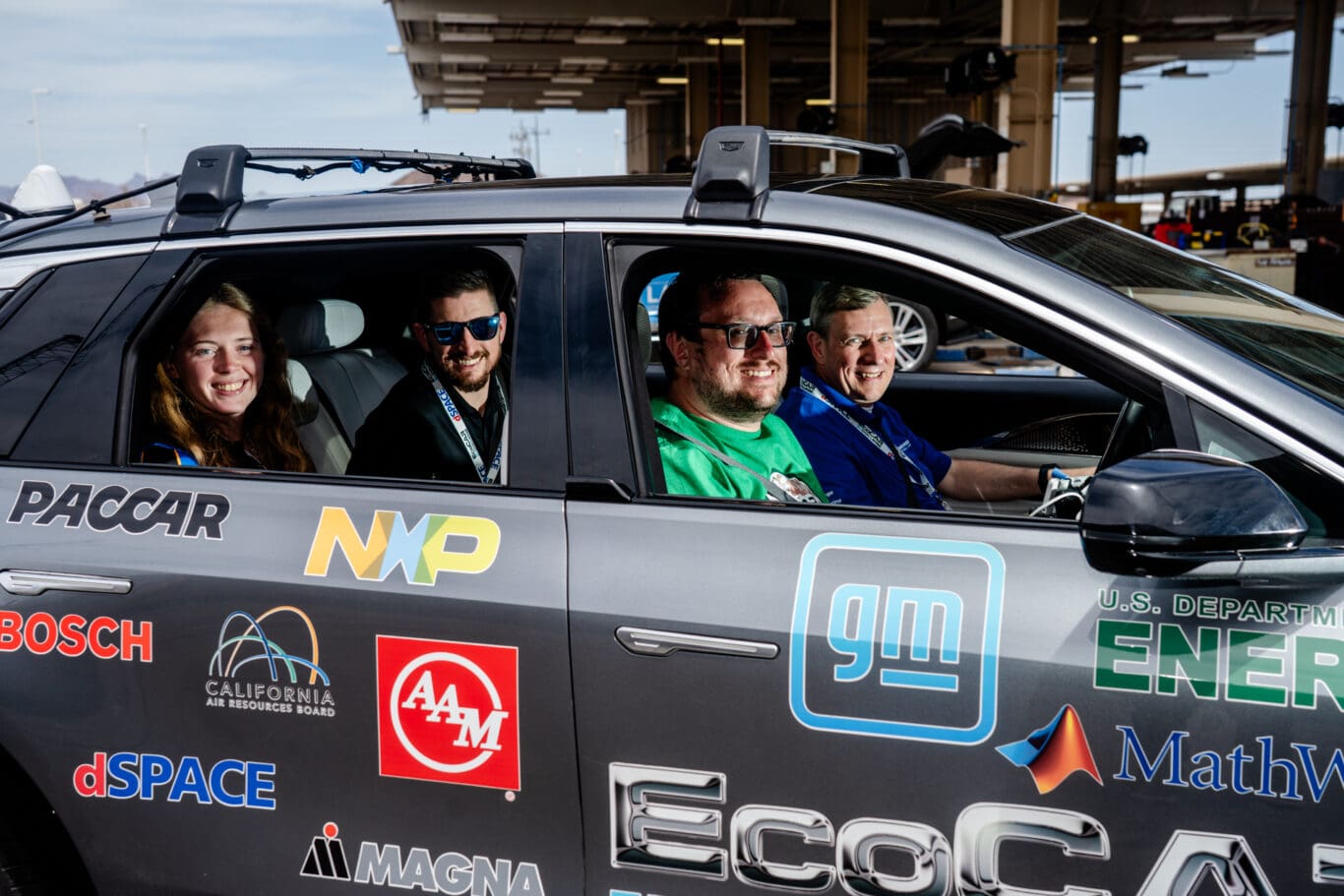
His remarks underscore the core values of the EcoCAR program: collaboration, interdisciplinary teamwork, and leadership through innovation.
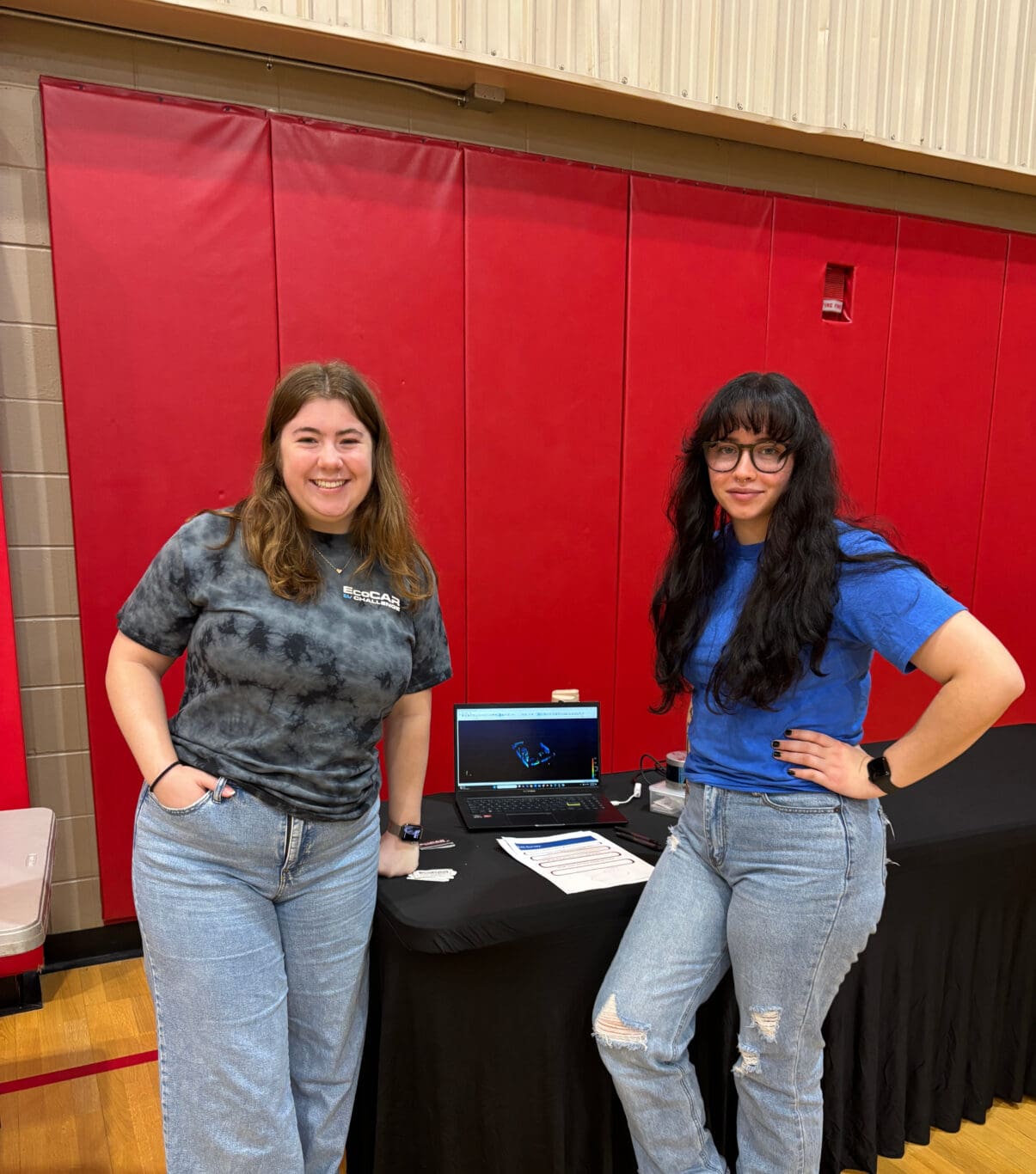
These successes wouldn’t have been possible without the generous support of our sponsors, who provided crucial hardware, software, and mentorship. MathWorks and General Motors were especially helpful in debugging the remaining issues with our code and Vehicle Technical Inspection fixes, allowing us to fine tune our vehicle’s performance. Their expertise and support were instrumental in overcoming critical challenges and ensuring that our vehicle met competition requirements.
As we close out Year 3, we look forward to applying the knowledge we have gained in the next phase of the competition. The progress we’ve made is a direct result of our team’s commitment, the invaluable support we’ve received, and the collaborative spirit that continues to drive us forward
